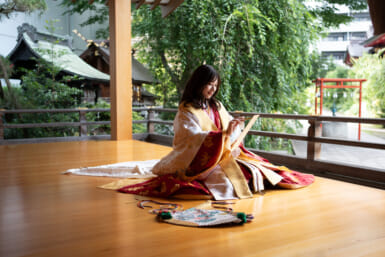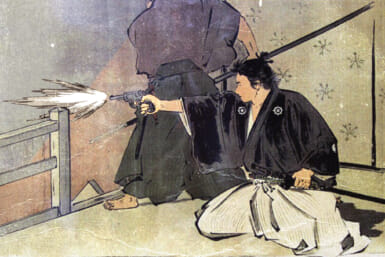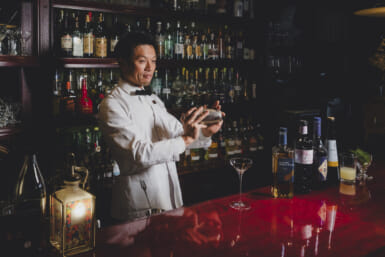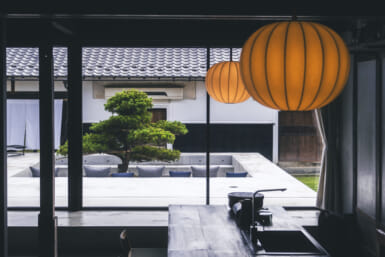Mister Etiquette
Dispensing rules of etiquette—be they social, sexual, or business—is a big-time industry. And it has been so for many years.
The leisure class particularly has always been concerned with “proper behavior” and its attendant rules and regulations. (It’s one of the few things peasants, sloshing about in the mud, seldom worried about.)
Schools and academics, wherein the study of manners and form comprised the bulk of the curriculum, flourished in 17th and 18th century Europe. Later, Victorian England managed to combine empire-building (and the accompanying new wealth) with heavy doses of “civilized propriety.” (“Correctness in manner and speech must follow, even whilst in association with local inhabitants and related peoples of colonial jurisdictions.”—Standards, J.L.B. Clarke, 1885. Author’s emphasis.)
Many of the earliest schools in the New World, particularly the New England “women’s seminaries,” were merely transplanted fabrications of the Old World finishing school concept. “Hard” academic disciplines were disdained in favor of the “softer” (and therefore more civilized) literature and manners curriculi. Trade school laborers built the bridges; gentlemen owned them.
The situation in Japan was not much different, historically. Traditional pursuits such as flower arranging, the tea ceremony and brush painting were in the domain of those of leisure. The restraint and control necessary for accomplishment are the precise requirements for evolving rules of polite behavior and standards of etiquette. It’s all so civilized.
Things have changed a bit, however. Even the masses now have leisure. They must be instructed. The sheer number of people interested in the rules of etiquette necessarily alters the nature of instruction. Personal guidance, as in the days of yore, can no longer deliver the product. (“Sir Humphrey, one never wears boots to bed,” or “Midori-san, you holding teacup upside down desu.” Whack.)
Rules, guidelines and general information regarding proper behavior are now in the hands of mass media. With that in mind, and with the understanding that not all situations in this respect have been covered in the past, Max Danger offers the following as a service to the ex-pat community in Japan.
1. Never bow from the waist whilst standing with your back against shoji. Hindquarters, in extension, will rip paper and break wooden slats, thereby dislodging the structure from the framework, which in turn will collapse on and about your person. Japanese rarely see this sort of thing, and it therefore detracts from the good impression originally intended by the bow. Plus, one never knows who will be embarrassed by whatever’s behind the now-demolished screen.
2. When bowing in close quarters, the bower should strategize the manuever so as the head dips to the left of the bowee. No one else knows this rule, but common sense dictates the creation of a practical custom so that concussive injuries to the head and shoulders are avoided.
3. Never experiment with the knobs and dials on toilets in modern Japanese homes. Not only might fuses be blown in the immediate neighborhood, but powerful jets of “body-heated” water can create clothing-and-surroundings situations difficult to repair with toilet paper and hand towels. Detailed instructions are necessary for the operation of space age toilets, however social gatherings are not the proper occasions for tutelage. Do your business and leave—touching nothing.
4. Never wear toilet slippers back into the living-room in a Japanese home. And understand that people dwelling on tatami can not be mollified by attempts at humor. (“Golly. Here I go again. I can never remember to change these danged things. Ha, ha, ha.”)
5. Do not ask for milk and sugar with your Japanese green tea. It’s not done. And it tastes awful.
6. The words “I do not speak English very well” mean something different, in relative terms, to the words “I do not speak Japanese very well.” Under, and over, statements are involved. Therefore, the words “I can’t understand these people— they seem so nice but I still don’t trust them” should be used with utmost discretion. They’ve heard them before.
7. Always leave the elevator first if you’re a man. If you’re a woman, leave last but out of politeness keep your finger on the “close” button as you’re exiting until the very moment before your arm is ripped from your shoulder by the closing doors.
8. Always slurp soup. Never slurp sushi. Always eat curried rice with a spoon the size of those your grandmother used when mixing dough for pies. Never stop pouring beer for your drinking companions until the foam erupts and spills all over table and laps. Always feign surprise when this happens.
9. Immediately approach and speak to the Japanese man wearing a wristwatch that A) fits, and B) in made anywhere but Japan. He’s lonely,
10. All stories involving the following colloquialisms should never be repeated in Japan. The required subsequent explanations will take more time than the story is worth, and subways stop running around midnight.
A) A horse of a different color
B) A pig in a poke
C) A snake in the grass
D) Birds of a feather
E) Raining cats and dogs
F) The ease with which a camel goes through the eye of a needle.
G) Made a monkey out of me
H) He’s a complete ass (or a pain therein).
I) Donkey’s years
J) The eye of an eagle
K) The heart of a lion
L) Wisdom of an owl
M) Wolf in sheep’s clothing
N) A bull in a china shop
O) Crying wolf
P) Spots on a leopard
Q) Memory of an elephant
R) A laughing hyena
S) The day of the jackal
T) Goose
U) Bullheaded
V) I was buffaloed
W) Chickenshit
X) Cock
Y) Going ape
Z) Brass monkey
11. Never wear the hotel yukata to a hot springs traditional Japanese banquet unless you are A) a woman, B) wearing tennis shorts, or C) a very small man. Those things go on for hours.
12. It is unbecoming for a blonde, 5’7″, blue-eyed woman to put hand to mouth and giggle. Don’t even consider it.
13. Do not rage at taxi drivers who cannot understand your directions in English. After all, how many New York taxi drivers, or London taxi drivers for that matter, understand English? (Or anyone in Australia?)
14. Do not pull your shirttail out, roll your pants to your knees, wear your suit jacket backwards and tie your necktie around your head during your performance at a karaoke bar. It can only lead to trouble. Particularly if you’re driving home. And most especially if your wife thinks you’ve been working late at the office. And without exception if you’re with your head office boss. (But always if you’re with the local staff.)









